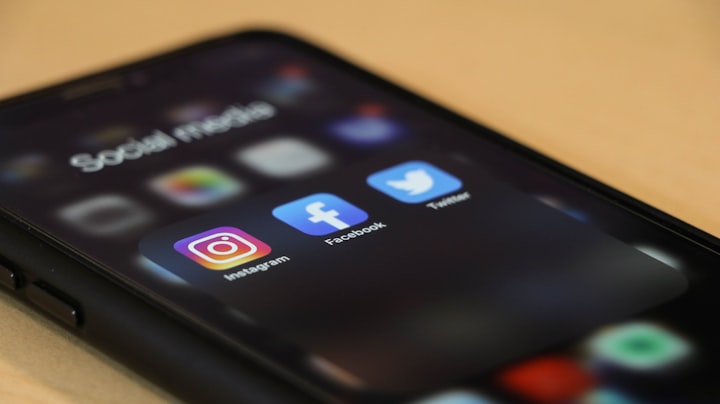Let's Say Goodbye to Tipping
Is the Practice Outdated In Today's Society?

I know some will immediately slam me for saying tipping is an outdated practice, but it's true. It's not me being cheap or not caring about workers who aren't getting paid minimum wage or above. It's about everyone and their cousin expecting a tip simply for doing the job they're already being paid a livable wage to do.
I recently read an article from Associated Press about tipping getting out of control and I can safely say from the comments, consumers are pretty much 50/50 about the situation.
Before you bash me in the comments, hear me about as to why it's time to just pay good wages and abolish tipping. Sure, you can still throw a few dollars in a tip jar at your favorite little diner, but most countries around the world have already gotten rid of it. Why can't the US?
Doesn't Everyone Deserve A Tip?
Let's use Starbucks as an example here. Baristas are earning roughly $15/hr. and then expecting hundreds of dollars in tips per month. Sure, customers are rude sometimes, but it's the job you signed up to do. The job requires fixing cups of coffee based on a customer's specifications. Once the order is complete, that order is over. There isn't any running back and forth to tables, continuing the service, or anything else.
So, if the barista needs a tip, shouldn't your cashier at the supermarket get a tip? After all, they actually do even more work than a barista and often start out at just above minimum wage, though some stores are now paying $15 and up.
A supermarket cashier has to scan items, deal with price checks, adjust items, sort items, bag them appropriately so nothing gets damaged, and often even places the bags in a customer's cart. This involves dealing with everything from a loaf of bread to heavy bags of dog food. Arguably, the cashier does far more work, gets paid less, and never gets tipped.
What about that phone or computer you're using right now to read this post? Think about the long hours factory workers spend helping create these items. Yes, much of that's automated now, but there are still some people on the lines making sure everything runs smoothly. Pay can range anywhere from minimum wage to over $20/hr., depending on experience and position.
Despite the fact that you don't see them face to face, shouldn't there be a tip tax that goes directly to factory workers each time you buy a product? Don't they deserve a tip?
The big question is where does it end? The only reason waitstaff were supposed to be tipped is because they made below minimum wage. Almost everyone provides a type of service. Does this mean every single employee in the US should be getting tipped in addition to their salary?
Percentages Don't Make Sense
The next problem with tipping is basing it on percentages. I've been to high-end restaurants where you get a splash of some random sauce, a tiny steak, and carefully stacked steamed vegetables that costs close to $100 a plate. Waitstaff took orders, refilled drinks, brought food, and brought the check.
I ate at a local diner where you got a larger steak, a baked potato, and dessert for around $25 per plate. The waitstaff did all the exact same things. In fact, they did it better and faster, knew the menu better, and never let my glass get below half empty.
Let's say the service was equal. Supposedly, you should tip at least 20% of the check. Why should the waitstaff at the expensive restaurant get around $20, while the diner staff only gets $5? That's not fair.
The cost of the food doesn't affect the level of service. In fact, I usually get worse service at more expensive restaurants. Mainly because the waitstaff expect patrons to feel guilted into tipping big simply because of the cost of the food. So, they can get by with abysmal service and still get a nice tip.
Tips should be based on the level of service. Do a great job, get a better tip. Do as little as possible and deal with your hourly wage.
Rising Costs Are Changing Things
Higher costs of everything are starting to make people stand up and take notice more. What used to be a suggested 10% tip is now 20% or even 30%. Little screens popping up suggesting tips for online orders at restaurants, getting hair cuts, and even shopping for products at small businesses. Yes, I've ordered from numerous small businesses and been prompted to leave a tip? For what? I paid for the product, haven't even had a chance to try it, and you need a tip?
While some service-based businesses, like fast food chains, are increasing wages, they're also streamlining the process by eliminating some jobs and using self-serve ordering stations. This allows for better wages, usually faster ordering, and lower price increases for consumers.
With so many restaurants constantly dealing with staffing issues, the next logical step is for waitstaff to become a thing of the past. You order at a counter, pick up your food when it's ready (or the restaurant has a few food runners to do this), and walk to a drink station to refill when needed.
Suddenly, the restaurant is paying out less salaries, customers don't have to worry about figuring in tips, and they still enjoy a nice meal.
Tips Disappear When Everyone Gets Tipped
Ask waitstaff, baristas, hair stylists, small business owners, and everyone else demanding tips and they'll say tipping is essential. But, ask them how much they tip. They'll claim anyone who doesn't tip is cheap and doesn't deserve services.
But, if they tipped 20% of more every time they ate out, had food delivered, went to a local store, had products delivered, or any other kind of service, they'd be broke.
Tips mean nothing if you have to immediately turn around and use them to tip someone else.
Something Has To Change
Something has to change or people will stop going out as often. You will see more and more businesses expecting tips. After all, why shouldn't every single employee get a tip? Everyone is providing some type of service. Shouldn't us writers on Vocal expect a 20% tip or more for our time writing posts?
Sure, tips are a nice bonus, but that they shouldn't be expected. For those in positions where tips help them reach minimum wage or higher, tips are still a necessity, but it should still be based on the level of service, not a percentage. Need more tips? Provide better service and take on a few more tables. Sorry if that sounds pissy, but I've encountered far too many waitstaff complaining about not making enough, but refusing to take more than 1-2 small tables at once.
What do you think? Is it finally time to come into the modern age, pay decent wages, and make tipping something completely optional and not a guilt-trip?
About the Creator
Krysta Dawn
A long-time writer finding her passion for writing once again, sharing advice, and spicing up the world one word at a time. Expect tech tips, writing advice, opinions, lifestyle, motivation, erotica, and more.






Comments
There are no comments for this story
Be the first to respond and start the conversation.